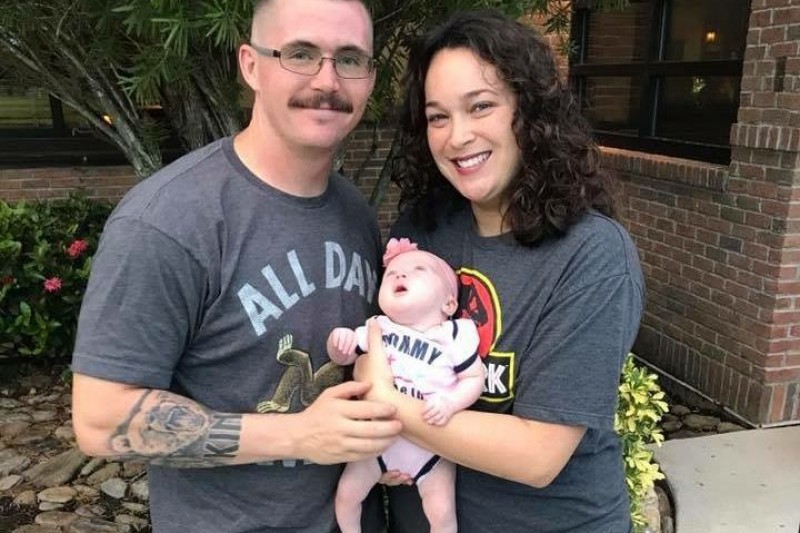She wasn't texting. She wasn't drunk. She wasn't speeding. But 18-year-old Zoe Reardon still killed three people with her Jeep in Atlanta two years ago, including a mother and her 3-month-old baby.
That was the defense, anyway, offered by her attorney in a criminal trial that ended yesterday. And it mostly prevailed.
Reardon faced nine charges, including vehicular manslaughter, but was sentenced to just 36 months probation — no jail time — and a year's license suspension. She will be allowed to continue attending college in Texas.
Responses to the decision have been divided. Some people on Twitter called the light sentence an example of white privilege. Other said, while the situation was sad, jail time didn't seem appropriate. It was dark after all, the argument goes. And the victims, Kaitlin Marie Hunt, her daughter, Riley, and their 61-year-old family friend, weren't in a crosswalk.
But there were no streetlights or crosswalks where Hunt was walking to a concert in suburban Woodstock, Georgia, WSB Atlanta noted. Cell phone records show Reardon texted her father about two minutes before the crash.
Regardless of the specifics of the case, it raises interesting questions about drivers responsibility for pedestrians' safety — and how low the bar has been set. What is the appropriate punishment for someone who unintentionally causes great harm with a car?
The framing advanced by Reardon's lawyers — which is typical in these kinds of cases — is harmful. People who kill someone with a car — as long as they're not drunk — are unlikely to ever face charges in the first place, much less be convicted or serve jail time. A 2015 Transportation Alternatives investigation [PDF] found that less than 7 percent of drivers who caused a death in New York City were charged with vehicular homicide.
There is very little accountability for drivers. In this case, Reardon only had to show she was not texting, not drunk, and not speeding. Meanwhile, pedestrians are faulted for not doing things that go above and beyond their legal requirements: like wearing bright clothing, or walking after dark. (Although in this case it was dusk, not even night.)
Furthermore, presumptions about the driver's behavior reflect a false dichotomy between intentional violence with a car and innocent mistakes, an "unavoidable accident," as Reardon's attorneys called it. Some accidents may truly be unavoidable due to freak circumstances or vehicular malfunction, but most are eminently avoidable by merely exercising reasonable car and attentiveness. There are a range of behaviors for drivers between total innocence and intentional harm. These behaviors include failing to slow down when pedestrians are present, cutting corners at intersections, even bullying pedestrians at crosswalks.
Of course, it may be difficult to reconstruct this behavior during a criminal trial in many cases. But Reardon's defense raises logical questions. How does someone who is being attentive and driving at a safe speed — as her attorneys claim — completely fail to see three pedestrians in the road? Wouldn't an attentive driver have been able to slow down enough to avoid at least hitting them at a lethal speed? Women carrying babies don't move that fast.
Certainly, this is only one case, but it's yet another opportunity for a more sensitive conversation about a national health emergency that took the lives of more than 6,000 people last year.
And it will always be a missed opportunity if drivers continue to receive the message that their responsibility to pedestrians begins and ends with not being drunk. We need to look out for one another on the roads, especially people who are very vulnerable. This case is just an extreme example of what can go wrong when we don't. It's sad that we might take the wrong lessons from it.





